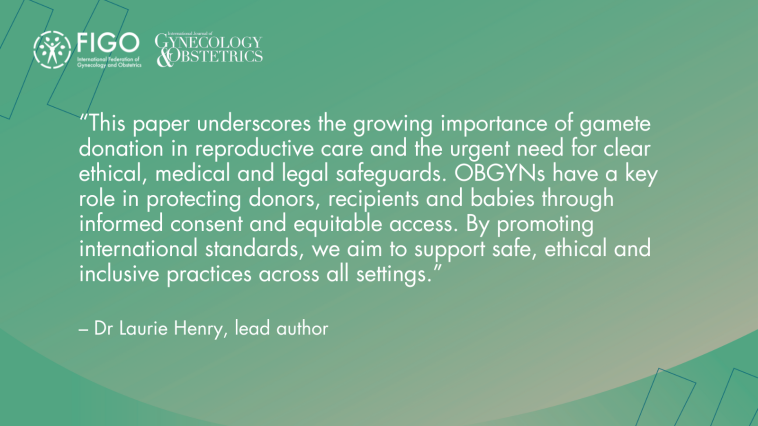Supporting safe, ethical and inclusive gamete donation practices

The FIGO Committee on Reproductive Medicine, Endocrinology and Infertility has published a paper that explores the ethical concerns and core principles surrounding gamete donation. This position statement offers key recommendations to ensure safe, equitable and ethically responsible practices that protect all parties involved.
Gamete donation has become a crucial part of Assisted Reproductive Technologies (ARTs), providing hope to people who may have no other option for parenthood. However, this process comes with complex ethical, medical and legal challenges that need to be carefully balanced.
This paper underscores the growing importance of gamete donation in reproductive care and the urgent need for clear ethical, medical and legal safeguards. OBGYNs have a key role in protecting donors, recipients and babies through informed consent and equitable access. By promoting international standards, we aim to support safe, ethical and inclusive practices across all settings.
Dr Laurie Henry, lead author
Key recommendations
- Right to know genetic origins. Donor-conceived individuals should have the right to know their genetic origins, including access to identifying information about donors when they reach maturity.
- Discouragement of donor anonymity. FIGO recommends discouraging anonymous gamete donation. Existing anonymous systems should be revised to allow retrospective disclosure.
- Ethical donor compensation. Compensation should cover reasonable expenses and time, avoiding financial inducement that could exploit donors.
- Counselling and informed consent. Comprehensive counselling and informed consent must be provided to donors and recipients, including discussion of potential future contact with donor-conceived offspring.
- National registries and record keeping. Countries should maintain national registries to store and manage donor and offspring information securely and accessibly over the long term.
- Global ethical standards. International cooperation is crucial to establish common ethical standards, while respecting cultural and legal diversity.
FIGO's position on gamete donation
FIGO supports ethically regulated, transparent gamete donation that prioritises the rights and wellbeing of all parties—donors, recipients, and donor-conceived individuals. It advocates for non-anonymous donation, informed consent, equitable access, rigorous safety standards and long-term record keeping. FIGO emphasises the importance of early disclosure to children, cultural sensitivity and international collaboration to ensure ethical practices in diverse legal and social contexts.